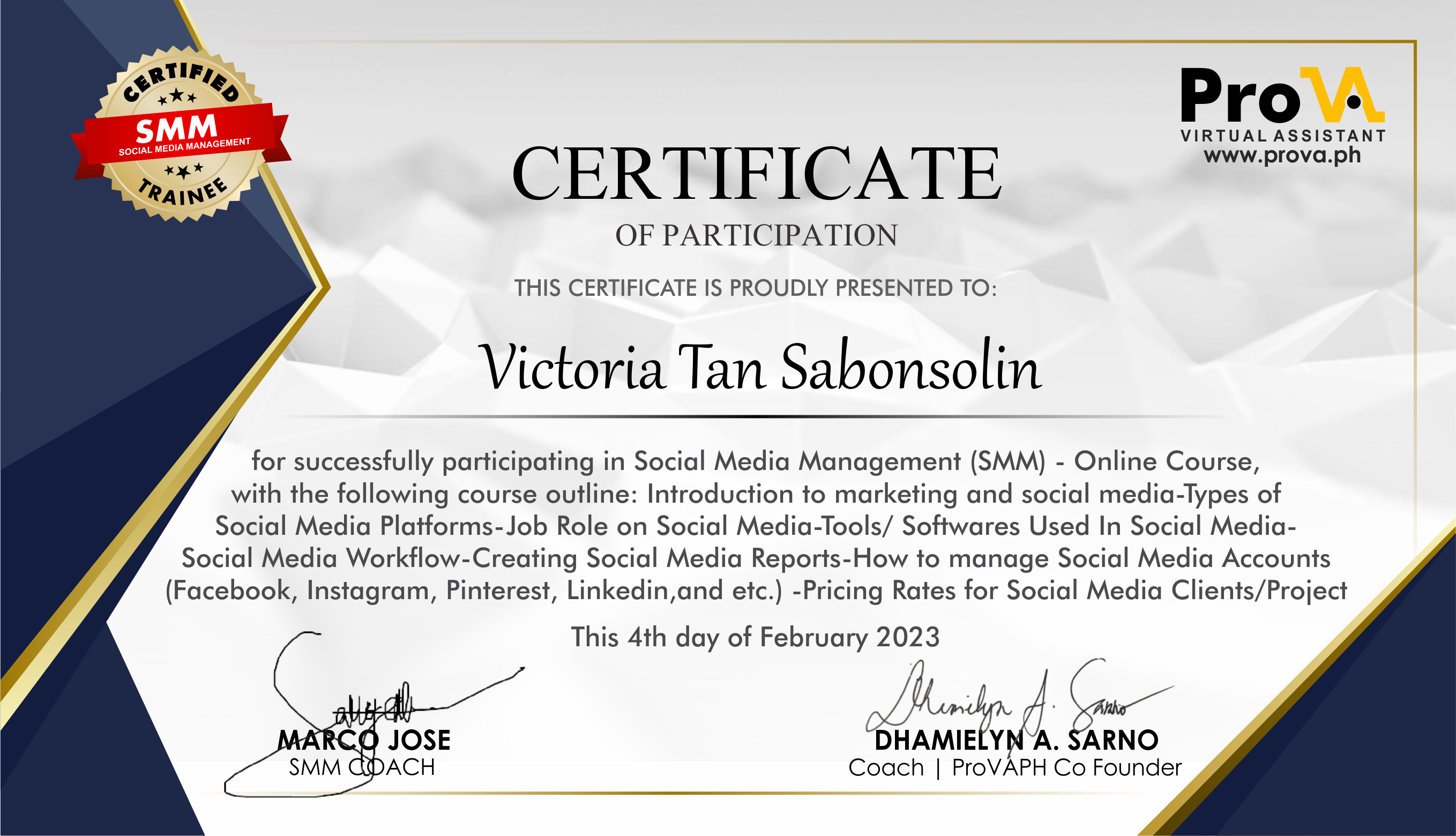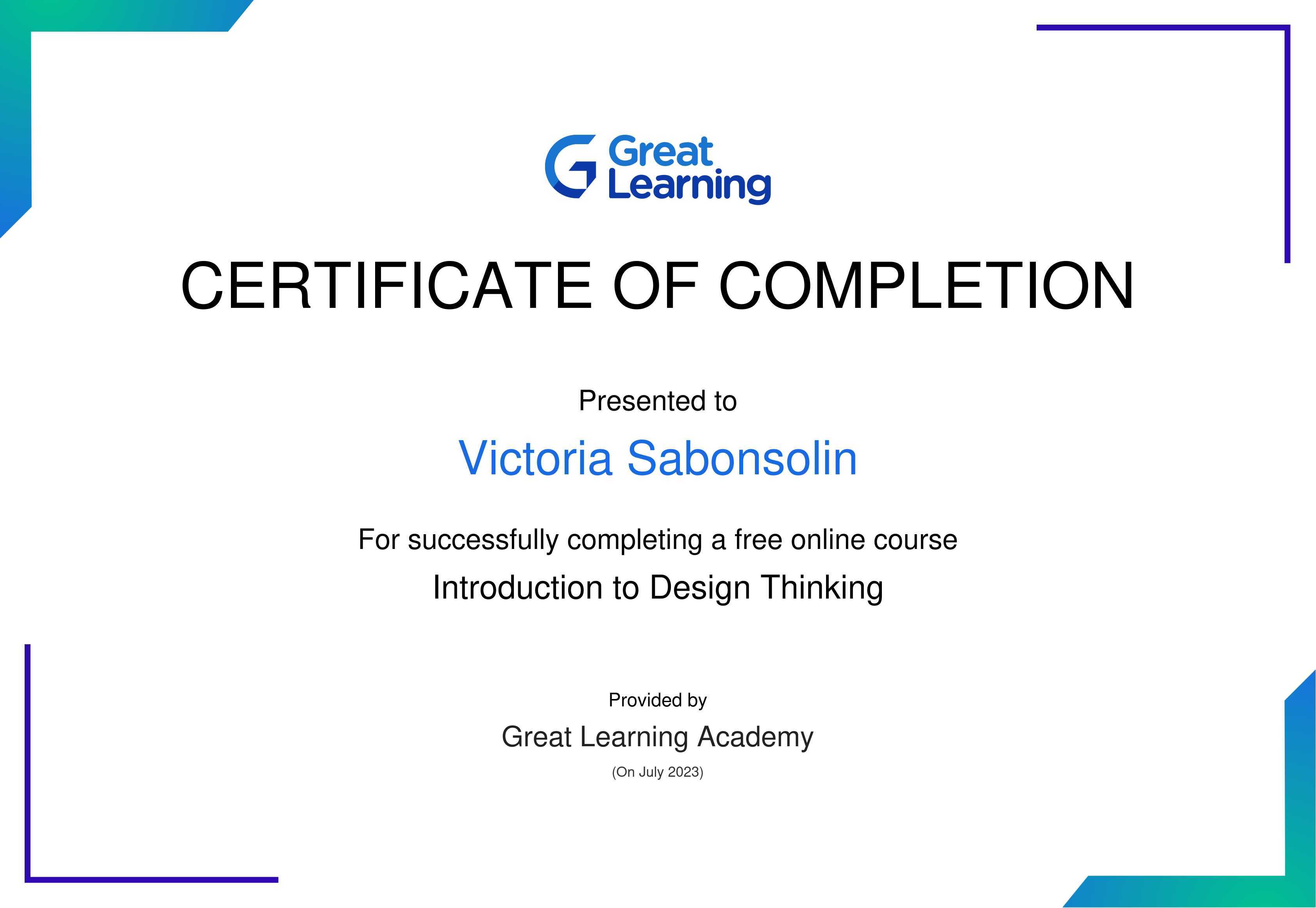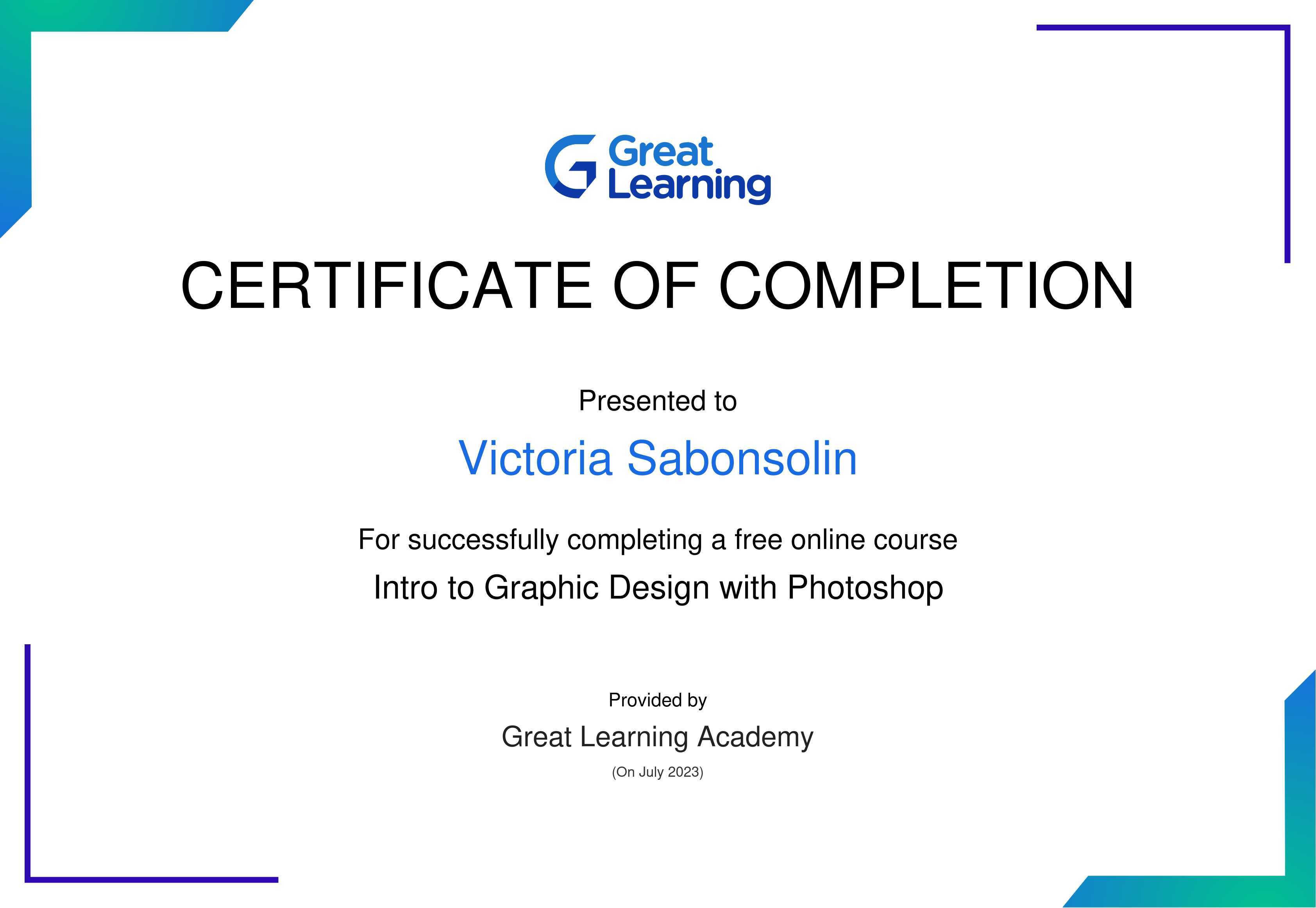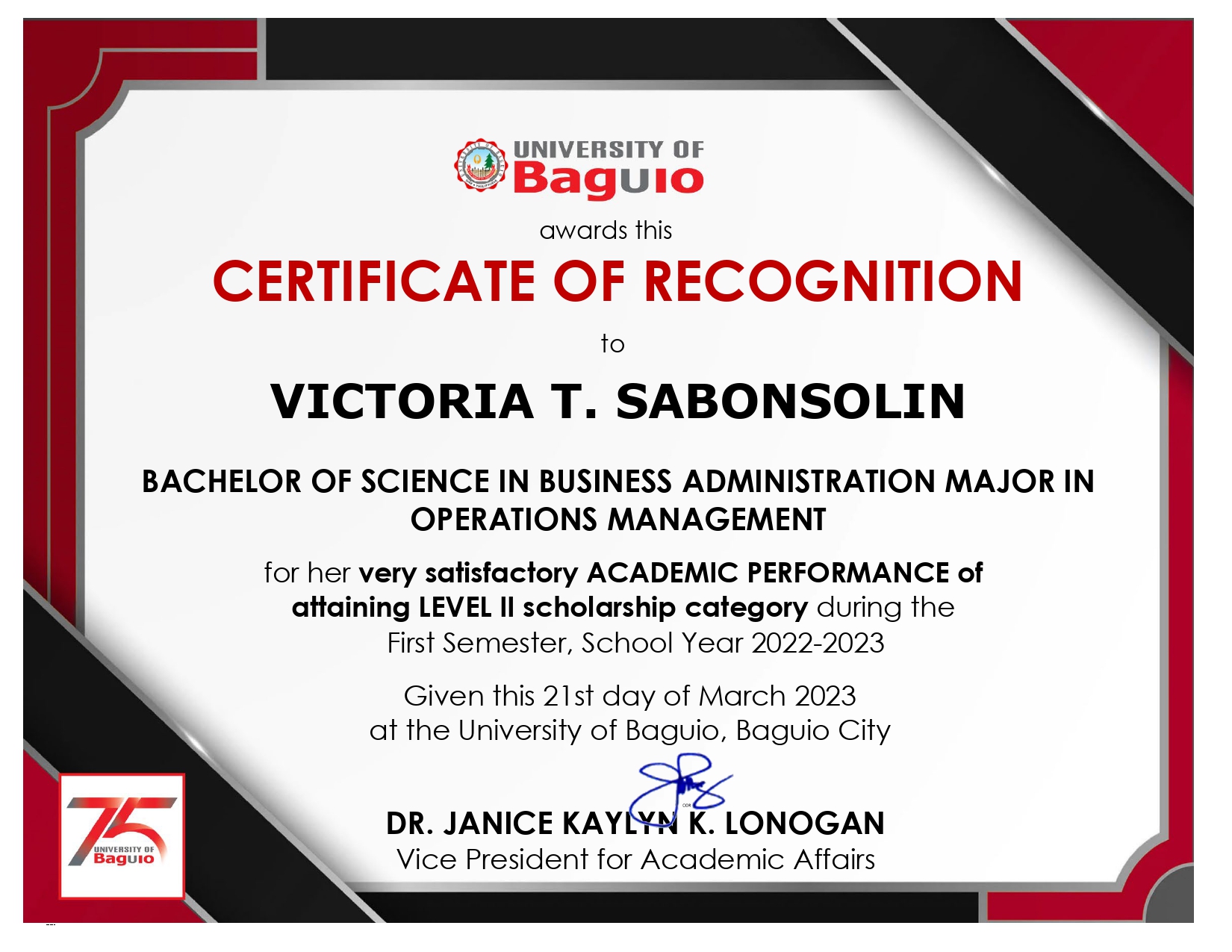BS in Business Administration Major in Marketing Management
UNIVERSITY OF BAGUIO
Marketing Management Course
• Understanding Consumer Behavior: Learned how consumers make decisions and what influences their choices, which helps in crafting effective marketing strategies.
• Market Analysis: Gained insights in analyzing market trends, competition, and identifying opportunities for growth and development.
• Strategic Planning: Developed skills in creating marketing plans that align with business objectives, focusing on product development, pricing, distribution, and promotion strategies.
• Brand Management: Explored the intricacies of building and maintaining a brand's image, positioning, and reputation in the market.
• Advertisement Creation: Explored various digital marketing channels and created effective advertisements by identifying target audiences, crafted compelling messages, and utilized visual elements to attract attention.
Operational Management Course
• Process Optimization: Understanding how to analyze and improve processes to increase efficiency, reduce waste, and enhance overall productivity.
• Supply Chain Management: Learning the ins and outs of managing the flow of goods and services, from sourcing raw materials to delivering finished products to customers.
• Total Quality Management (TQM): Understanding TQM principles that emphasize continuous improvement, customer focus, and employee involvement to enhance product quality, processes, and services.
• Just In Time (JIT): Learning about JIT methodologies that aim to reduce waste by receiving goods only as they are needed in the production process, minimizing inventory costs and improving efficiency.
• Project Management: Managing projects effectively from planning to execution, monitoring progress to achieve objectives.
• Risk Management: Identifying, assessing, and mitigating risks that may affect operational processes and business continuity.
Information Technology Application Tools in Business Course
• Power BI: Learned how to use Power BI, a robust data visualization tool. Also learned how to analyze and visualize data, created insightful reports and dashboards, and derived valuable business insights, such as sales trends and customer behavior patterns.
• Enterprise Resource Planning (ERP): Exploring ERP systems like SAP, I learned how they integrated various business processes. I managed accounting, human resources, inventory, and customer relationships within a unified platform, boosting operational efficiency.
• Smartbooks: With Smartbook technologies like QuickBooks, I optimized accounting and financial management processes. I gained real-time insights into financial data, aiding in making informed decisions for the organization's financial health.
Financial Management Course
• Financial Analysis: I learned to analyze financial statements and reports to assess the financial health of companies, understanding concepts like balance sheets, income statements, and cash flow analysis.
• Financial Planning: Understanding the importance of financial planning, I acquired skills in creating budgets, forecasting financial needs, and setting financial goals aligned with organizational objectives.




